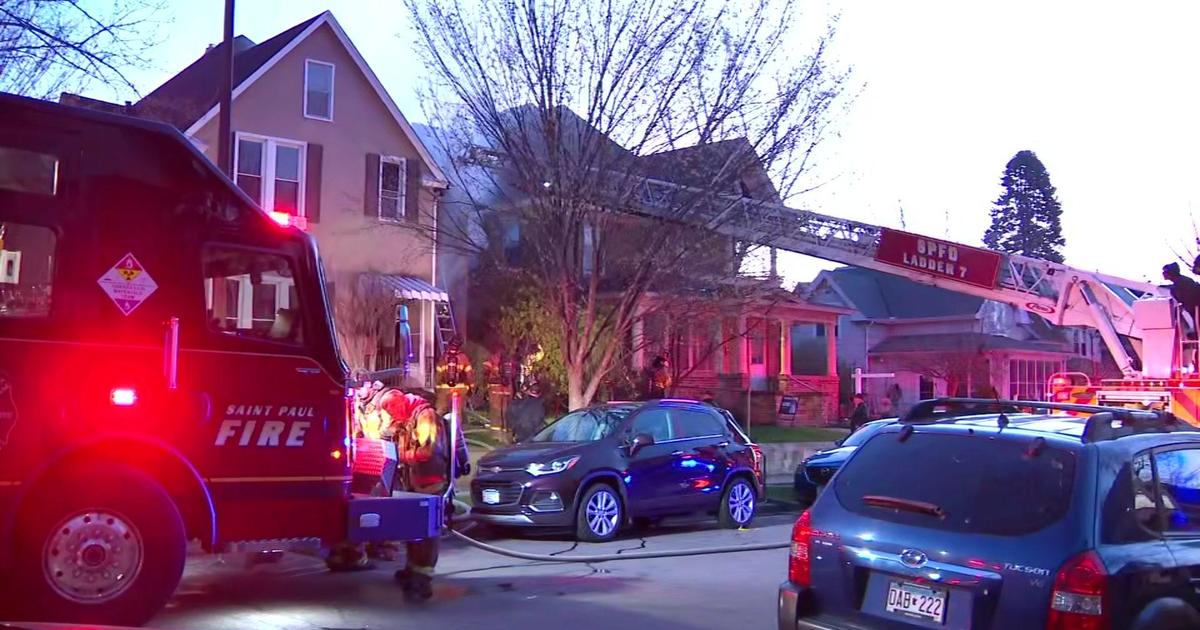Back To Budgets, Ryan Returns To Comfortable Topic
WASHINGTON (AP) — Paul Ryan is getting his groove back.
A month after the GOP's presidential ticket lost an election, the party's vice presidential nominee finds himself comfortably back in his political wheelhouse on Capitol Hill and in the thick of a debate over how to avert automatic tax increases and spending cuts that many economists fear could cripple the economy if Congress doesn't head them off by Jan. 1.
The Wisconsin congressman isn't technically a member of the House Republican leadership. But he's viewed by GOP colleagues as an expert on economic and tax policy and entitlement programs. He's a good gauge of how far the party's most conservative lawmakers will bend, if at all, as House Speaker John Boehner negotiates with the White House and Democratic-controlled Senate over the "fiscal cliff."
That explains why Ryan has become a new addition to what previously was a four-person, 30-minute morning meeting led each day by Boehner and Majority Leader Eric Cantor, R-Va.
The GOP leaders want his views in planning strategy for dodging a budget meltdown and coming out on top politically. As an informal liaison to rank-and-file members, he's in a position to test what policy changes these members may be willing to support and sell them on what they should accept or reject. Ryan's imprint on any deal could be enough to satisfy some of the party's most conservative constituencies that otherwise might balk at any notion of tax increases.
"Congressman Ryan finds himself at a near-perfect meeting of preparation and opportunity," said Joe Brettell, a Republican strategist and former Capitol Hill aide. "His credibility with both Republican leadership and the conservative establishment will make his support a crucial element to any fiscal cliff agreement."
According to House GOP officials, whatever top Republicans need from Ryan — from policy advice to political cover — they're getting it.
Ryan plays down his role, saying people should focus on Boehner and President Barack Obama.
"Speaker Boehner has outlined a bipartisan way forward to avoid the fiscal cliff and get our economy growing: commonsense entitlement reform coupled with pro-growth tax reform," he said last week. "We can find common ground on responsible spending restraint and greater revenue, but we have yet to see real, specific spending cuts from President Obama."
Nevertheless, Ryan's deep involvement in the debate suggests his reputation within the GOP as a conservative leader against tax increases and advocate for reining in spending, particularly on programs like Social Security and Medicare, hasn't been hurt by his failed stint as Mitt Romney's running mate.
To a certain extent, the fiscal policy negotiations playing out on Capitol Hill give him an opportunity to reshape his profile on his own terms for a potential 2016 run at the presidency after a 2012 campaign in which allies say he often was muzzled and had to defer to Romney.
"He knows this stuff. He's been battle tested," said Rep. Cory Gardner of Colorado, a Ryan friend who often joined him during the campaign. "It gives the members more confidence in what they're doing, knowing that we've got someone on our side who is an incredible player, somebody who knows how to execute and knows he can win on a message that is right."
Romney chose Ryan, a former Hill staffer and self-professed budget geek, as his running mate largely because of his fiscal policy credentials, doubling down on the notion that voters would above all else cast their ballots on who could spark the nation's then-sputtering economy. Ryan was front-and-center those first weeks, blitzing local television stations in swing states with more than 100 interviews.
But Romney soon found himself getting hammered over Ryan's earlier budget proposals for deep spending cuts to programs for seniors and the poor. Democratic critics ran ads assailing the Ryan budget, and Republican candidates across the country were put on the defensive over it.
Ryan eventually faded back into the traditional role of a vice presidential candidate, assailing the opponent and validating the top of the ticket's credentials with a carefully scripted daily speech — and above all, not making any unnecessary waves. His last interview before Election Day was on Oct. 8.
The day after the election, he told reporters he would be returning to his home in Janesville, Wis., to spend time with his family before going back to his job in Congress, for which he won re-election on Nov. 6.
While some advisers urged him to give up his House seat and focus solely on a potential 2016 presidential bid, Ryan decided his budget experience was needed in Washington to help dodge the fiscal cliff crisis. But he also likely realized that a debate in his area of expertise could provide a huge political payoff and solid footing well ahead of the next race for the White House.
(© Copyright 2012 The Associated Press. All Rights Reserved. This material may not be published, broadcast, rewritten or redistributed.)



